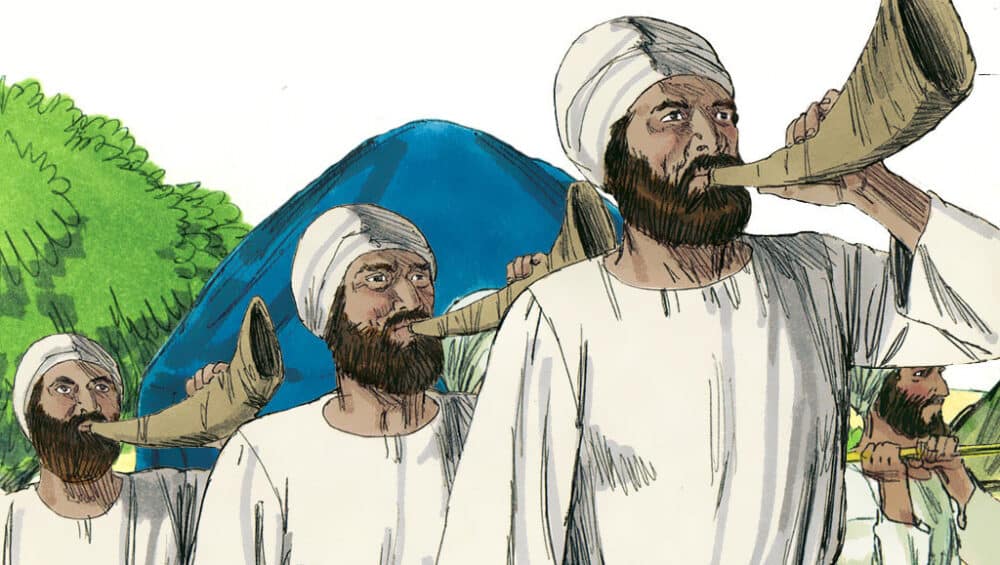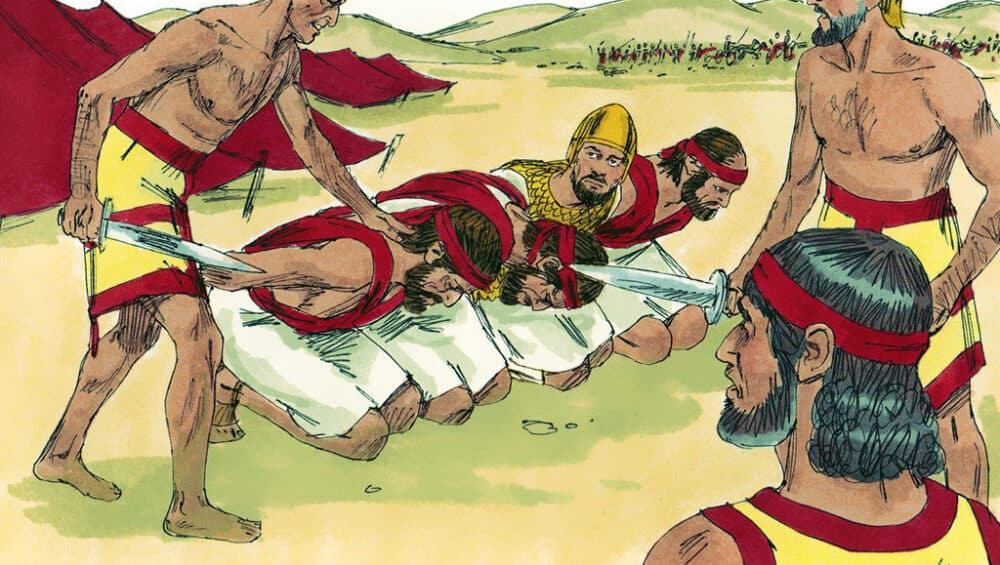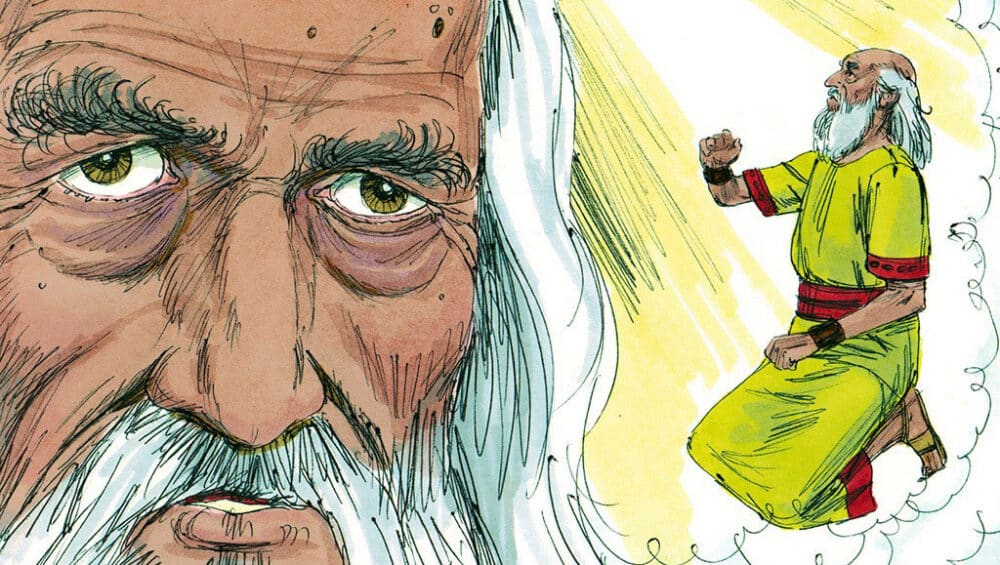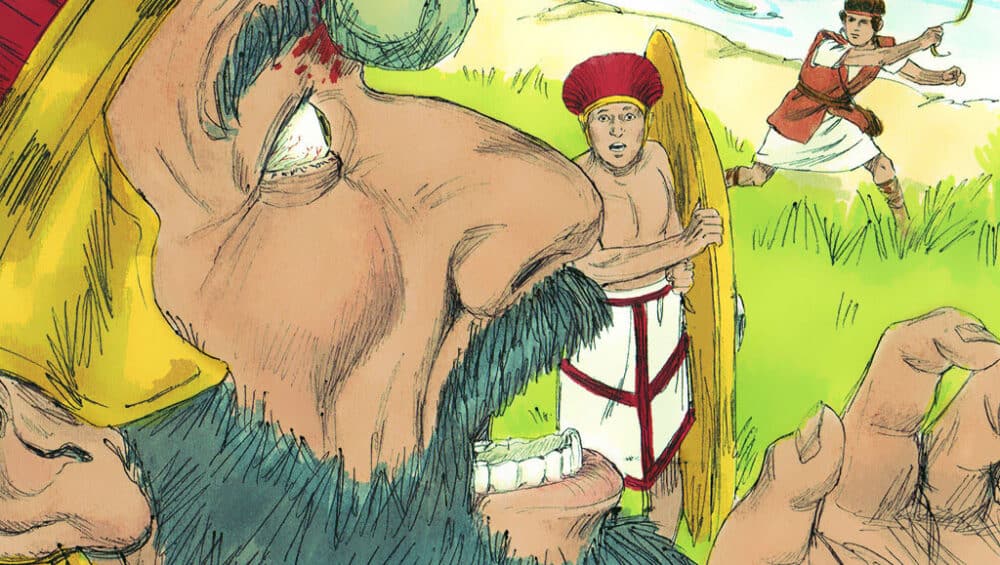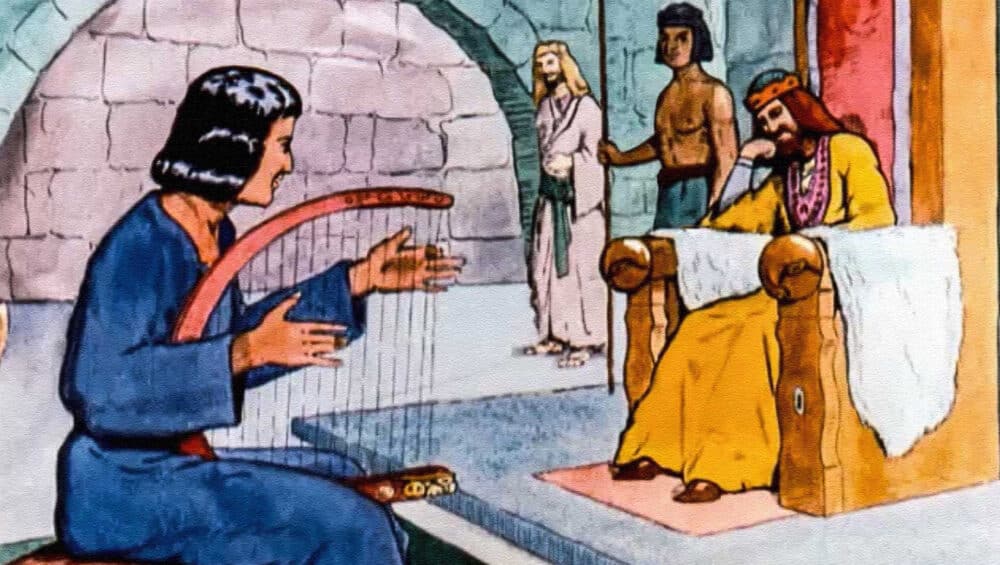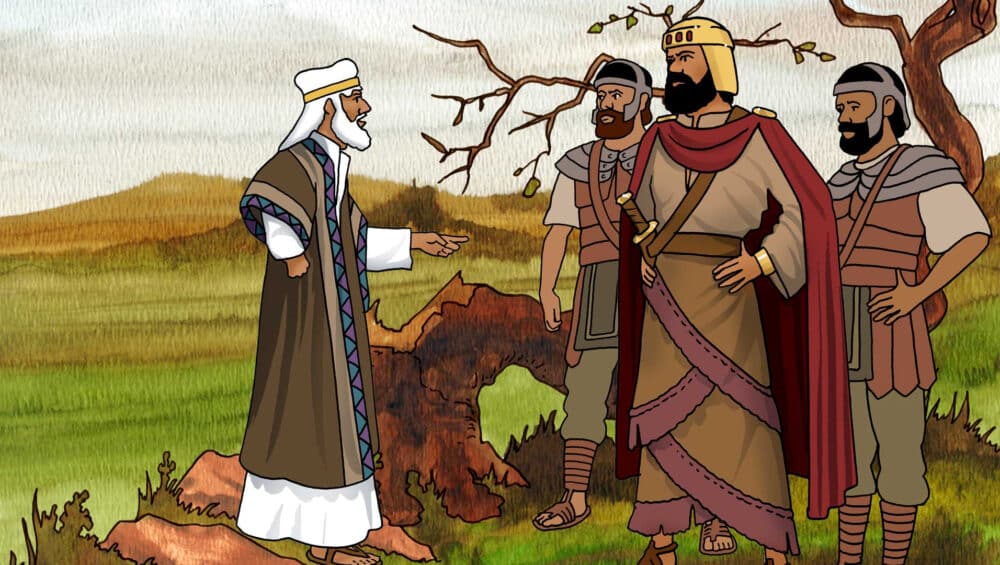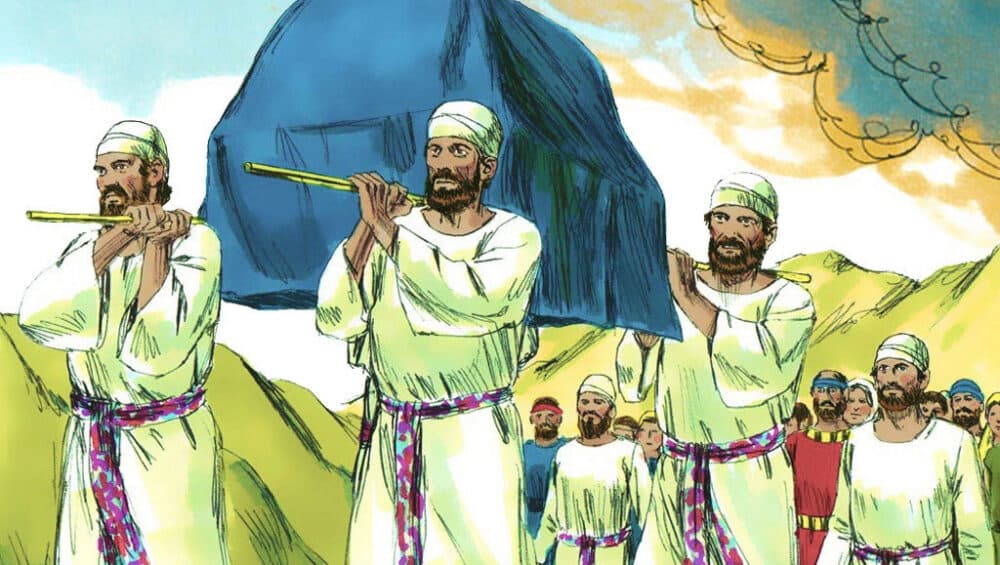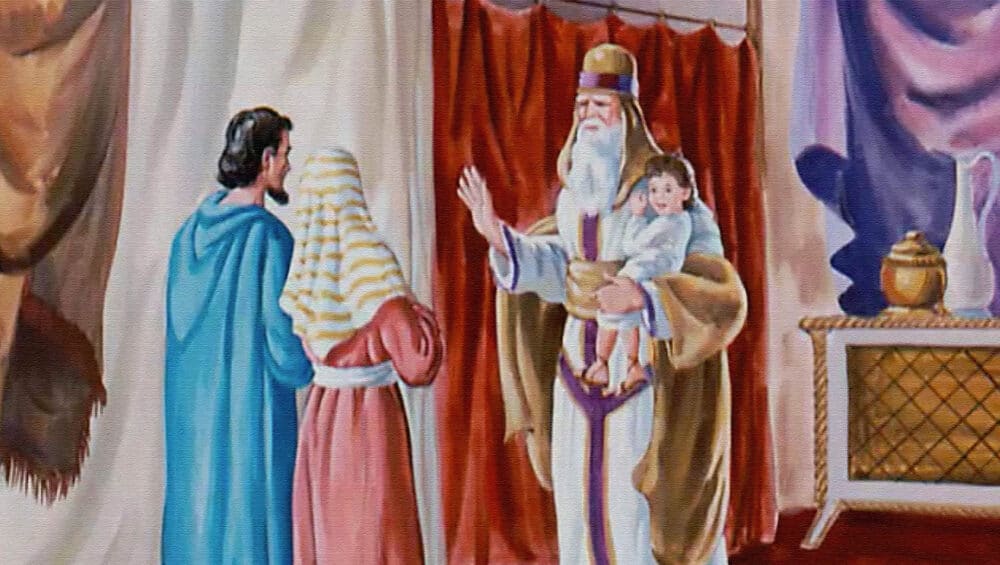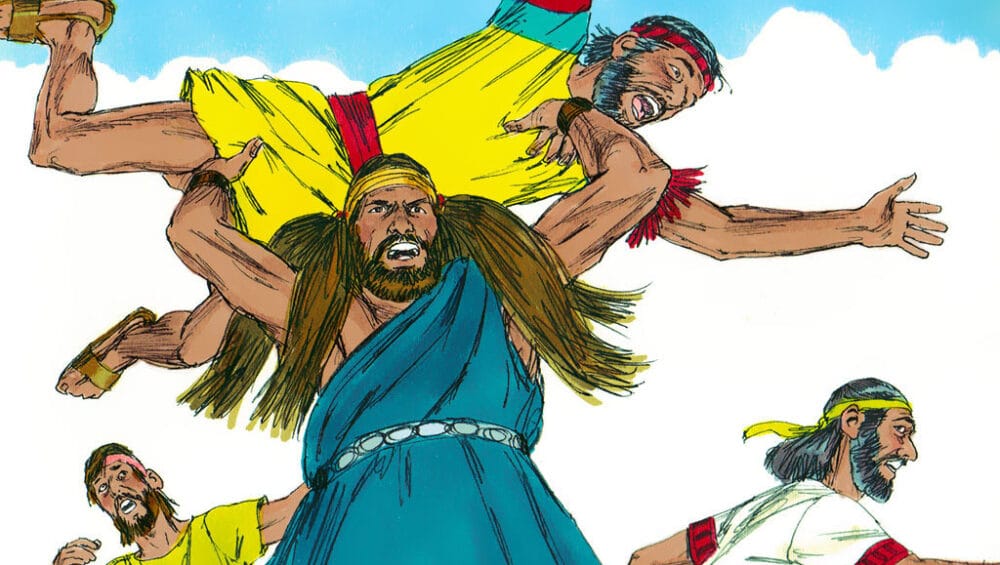Sweet Publishing / FreeBibleimages.org.
Welcome to Livin’ Light’s Bible-In-A-Year challenge of discovering God’s love for us and His purpose for our lives. Here is the format for this great adventure: The daily reading assignment is posted at 5 a.m. After each day’s reading, Leigh An Coplin, the blog host, shares observations and poses questions about difficult passages to Rob Fields, who studied Christian Education at Asbury Seminary and currently teaches Biology in the Orlando area. To start from the beginning, click on 365 Bible Readings and scroll down to Day 1. The reading schedule is taken from The One Year Chronological Bible NLT.
Today’s Reading
— 2 Samuel 5:1-3
— 1 Chronicles 11:1-3
— 1 Chronicles 12:23-40
— 2 Samuel 5:17-25
— 1 Chronicles 14:8-17
— 2 Samuel 5:6-10
— 1 Chronicles 11:4-9
— 1 Chronicles 3:4b
— 2 Samuel 5:13
— 2 Samuel 5:4-5
— 2 Samuel 5:11-12
— 1 Chronicles 14:1-2
— 1 Chronicles 13:1-5
— 2 Samuel 6:1-11
— 1 Chronicles 13:6-14
(1003-1000 BC) Click here for a timeline of the entire Bible.
Questions & Observations
Q. (2 Samuel 5:3): We have seen “the elders of Israel” many times, but who are they?
A. They would be the leaders of each of the thirteen tribes (including the Levites and two half tribes). They most likely were the heads of each of the major families, and most likely the most powerful men from each region of Israel.
O. (1 Chronicles 12:38-40): These verses provide a wonderful picture of all of Israel pouring in to Hebron to see David become king. They brought provisions to share with all their kin. This must have been the largest family reunion ever — a wonderful sight, especially after all the years of unrest because of the conflict between David and Saul (mostly brought on by Saul).
Q. (2 Samuel 5:21): I see a problem on the rise here. David and his men confiscated the Philistines idols. But, in 1 Chronicles 14:12, David gave orders to burn the Philistine gods.
A. It is probably both (they were taken and then later burned). The Samuel story tells us that the Philistines brought images of their gods into battle in hopes of assuring victory — in the same way we saw Israel lose the Ark in 1 Samuel 4. The story tells us that when defeated, they left the idols, so part of the process of spoiling the battlefield would be to collect them. When in doubt, the Chronicler ALWAYS tries to show David in a better light (that’s the nature of Chronicles, written later as a way to memorialize Israel’s great leaders). So it is unsurprising to me that Samuel would tell us that they collected the idols — without implying they burned them later, though they may have — while Chronicles tells us that David had them destroyed.
Q. (1 Chronicles 11:6): I thought Joab and his family were struck with leprosy as a punishment for killing Abner. How could he be David’s army commander if he had this disease?
A. He was (Joab is David’s nephew by the way). Don’t forget that leprosy would have meant a variety of skin diseases, and it was spread over an entire family, and not necessarily lethal. Joab apparently did not suffer much under this curse, because he will play a huge role in the rest of the story.
Q. (1 Chronicles 3:4b, 2 Samuel 5:13): Why did David move to Jerusalem?
A. Jerusalem was the central point for that area of Israel — it was at a high elevation and very useful strategically. It was also along the border of Judah, David’s tribe, and Benjamin’s territory, so making that his capital would allow David to smooth over relations with the “rogue” nation.
Q. (2 Samuel 6:6-7, 9-11, 1 Chronicles 13:9-10, 12-14): So, I guess Uzzah was supposed to have power over his natural reflexes of catching something that is falling? Maybe David and the Israelites were singing and dancing too much, and not showing God reverence? So, this mishap may have been a reminder to get them in the right frame of mind? Do I have this right? And, can you explain verses 9-11? I find it strange that the Ark would reside in someone’s house.
A. OK, the deal here is that David is cheating by using a cart to move the Ark. Remember the way it was supposed to be moved: by having the priests carry it on poles? Uzzah died because of his lack of reverence for the Ark, but mostly because David was being irresponsible in his movement of it. David will correct this mistake in our next reading. My notes indicate that the Ark resided at the home of a priest, and “house” is probably a loose term for property. The Ark was secured on the property of a proper guardian to await God and David’s next move. The blessing on Obed-Edom’s house is an indication that the anger of God had subsided.
For further study: God’s presence and the Ark, https://www.ligonier.org/learn/articles/ark-covenant-and-gods-presence-us
Shop: Christian shirts get noticed. Check out these conversation starters: https://livinlight.org/shop/
Tomorrow’s reading
— 2 Samuel 6:12a
— 1 Chronicles 15:1-28
— 2 Samuel 6:12b-16
— 1 Chronicles 15:29
— 2 Samuel 6:17-19a
— 1 Chronicles 16
— 2 Samuel 6:19b-23

